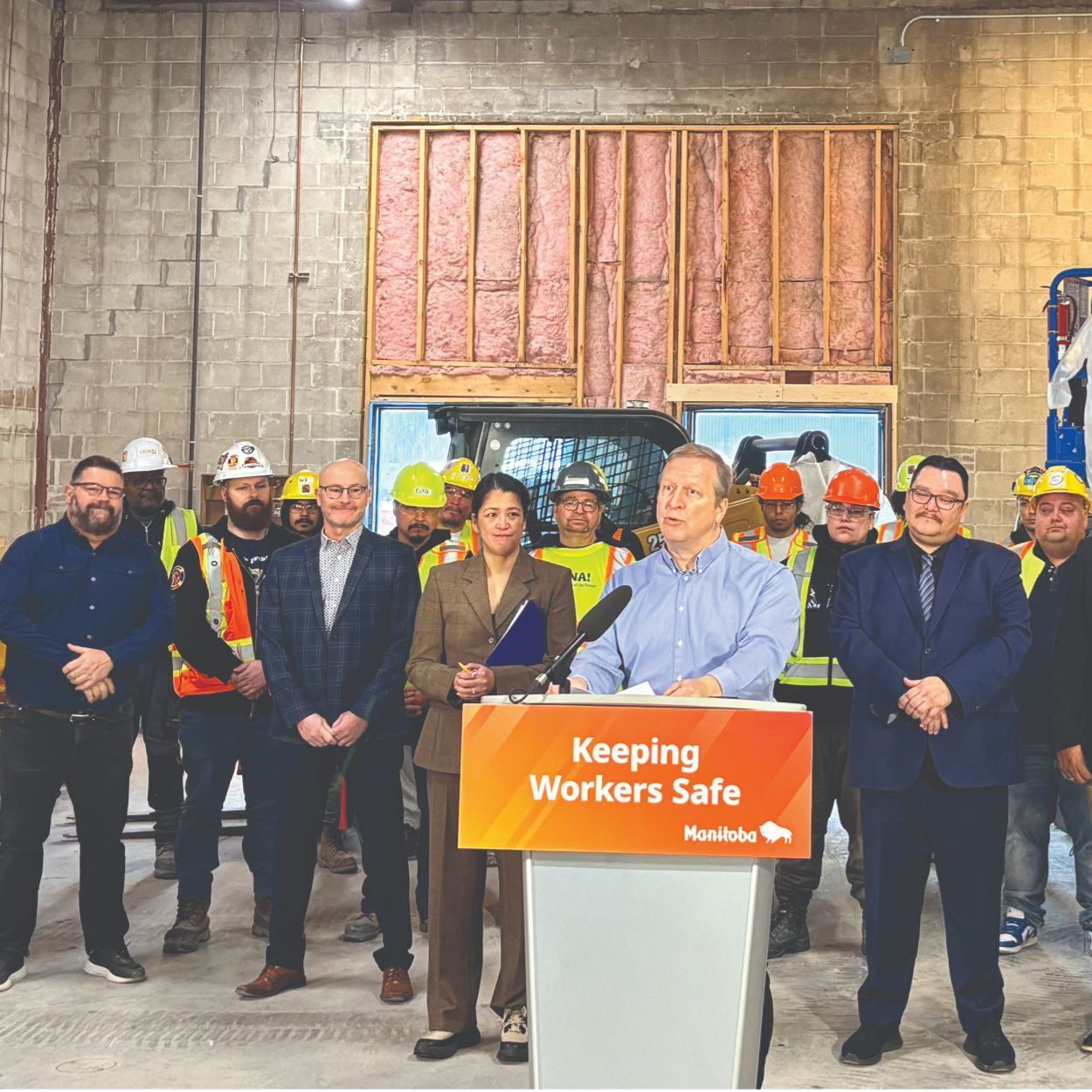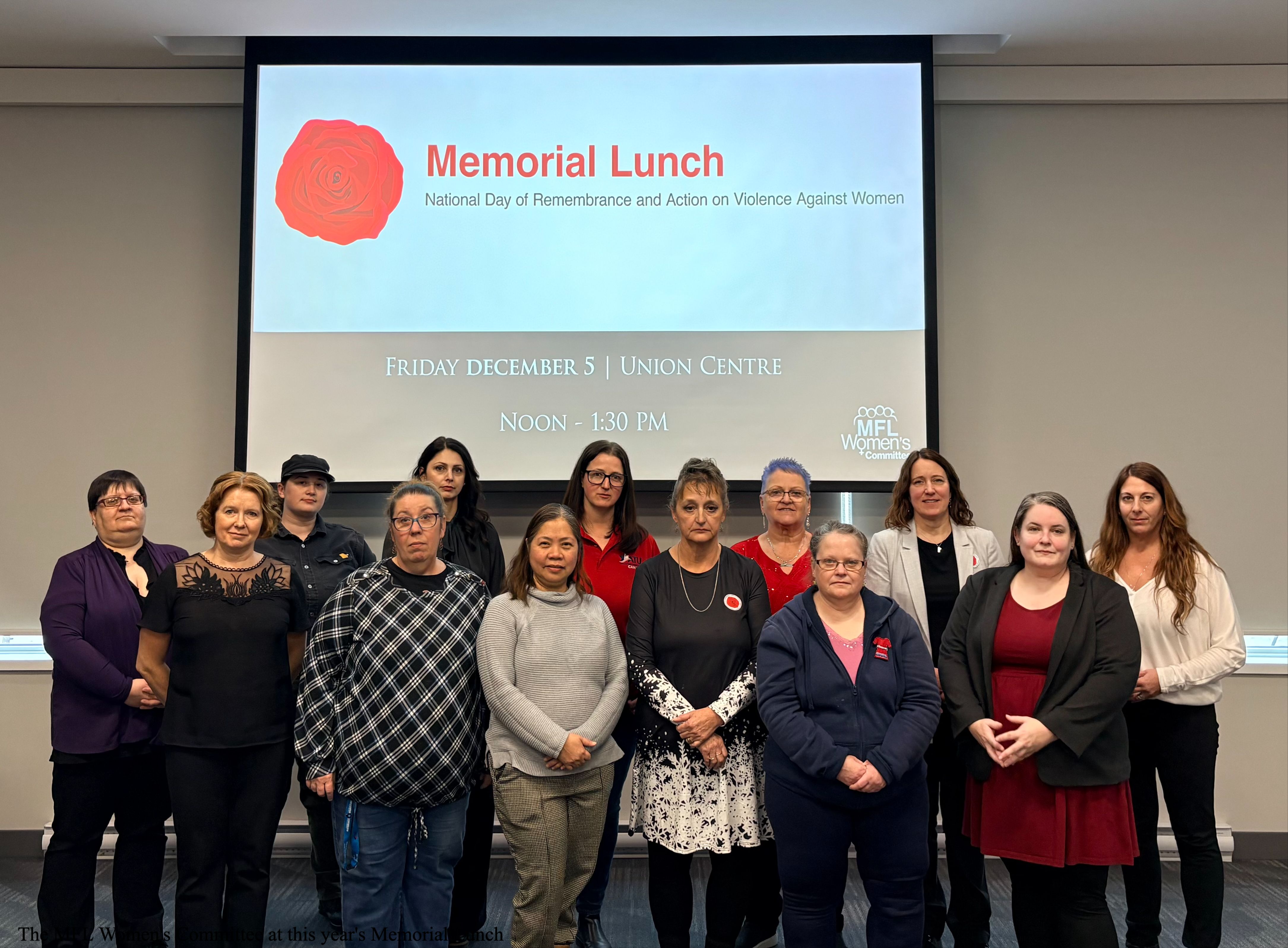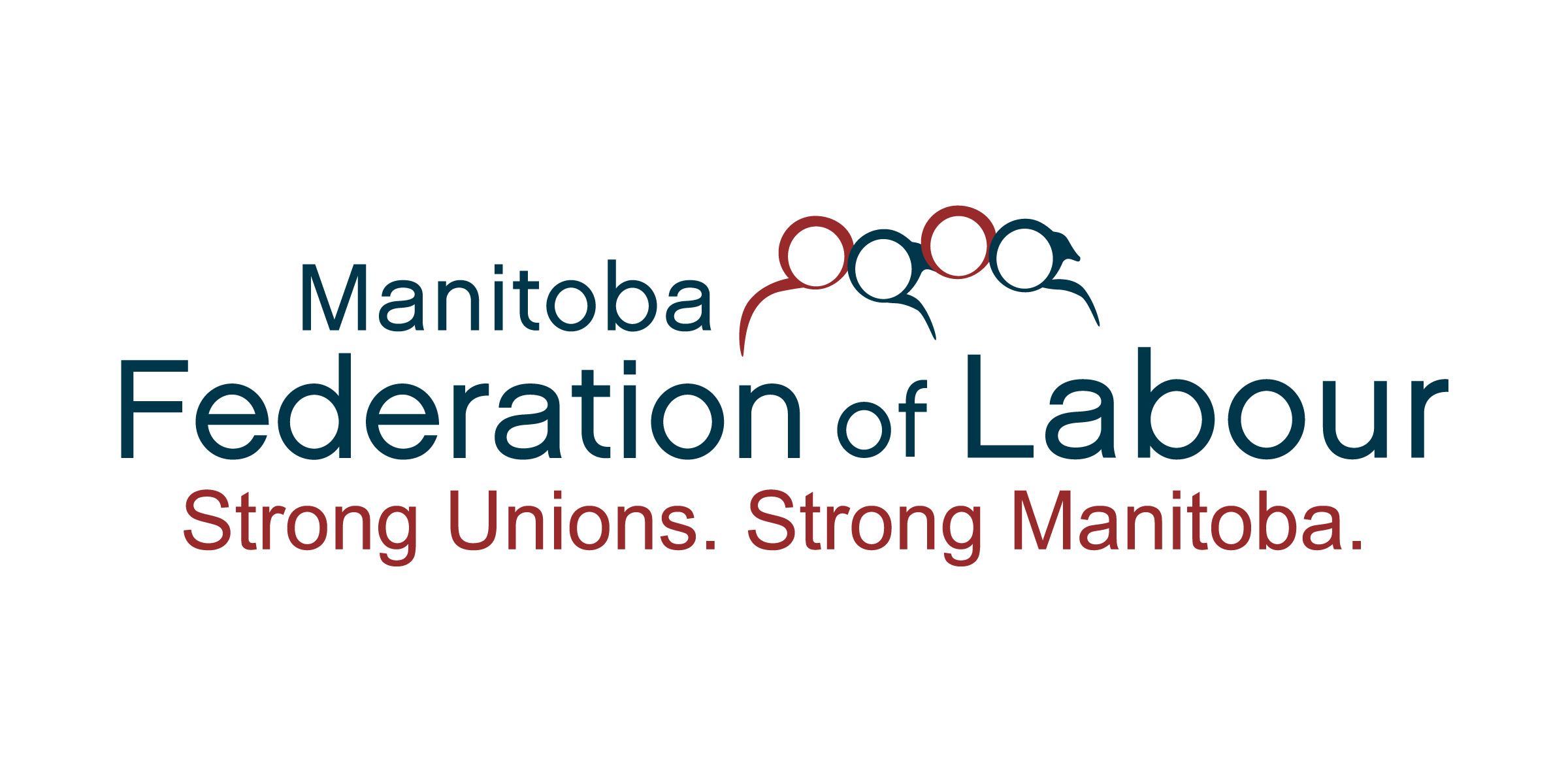February/26
January/26
TO ALL CUPE CHARTERED ORGANIZATIONS Dear Sisters, Brothers, and Friends:
Since November 16, the 30 members of CUPE 5564, have been on strike. Their employer, Autobus Fleur de Lys, is a private company in the town of Shawinigan that was awarded the contract to provide public transit services in the community.
Among other things, our members are fighting for the right to take breaks during shifts that can last up to 10 consecutive hours, as well as for improvements to their wages. Currently, maintenance staff earn $17.80 per hour, while drivers earn $20.81 per hour.
The members of CUPE 5564 are facing an employer that has taken a troubling anti-union stance, including the dismissal of the local president just three days before the strike began.
CUPE 5564 is a small local and is in urgent need of solidarity. We are calling on all chartered organizations across the country to send letters of support and make financial contributions to assist the local.
Letters of support can be sent to syndicat-scfp5564@outlook.com.
Donations can be directed to CUPE Local 5564, c/o Quebec Regional Office, 565 Crémazie Boulevard East, Suite 7100, Montréal, Quebec, H2M 2V9. Electronic funds transfers (EFTs) can be sent to cgirard@cupe.ca.
In solidarity,
MARK HANCOCK
National President
CANDACE RENNICK
National Secretary-Treasurer
 |
|
December/25
Union Input Needed re. WCB Legislative Review
President’s Report Nov/Dec. 2025
Dear Sisters, Brothers and Friends,
It has been another busy fall here at the MFL!
A number of unions hosted their conventions and AGMs this fall, and I had a great time speaking at these affiliate union events – it is always great to connect with union activists and learn more about our labour family.
In October, I was honoured to emcee IBEW 2085’s 65th Anniversary Gala – celebrating the incredible work that Manitoba’s unionized construction electricians do in building our province and recognizing the contributions of longtime members.
2026 MFL Health and Safety Conference
The 2026 MFL Health and Safety Conference provides worker-focused education and tools for union activists to help them be more effective health and safety committee members and advocates for health and safety in the workplace.
New protections will save lives
NDP Minister of Labour Malaya Marcelino has responded to labour’s call and announced major new workplace health and safety protections to ensure all workers who deal with asbestos meet mandatory training standards and that all companies that do asbestos work be registered with the province. These new rules will save lives, and you can read more at mfl.ca.
Dear Sisters, Brothers and Friends,
CCPA-Manitoba has released new living wage calculations that highlight just how big the gap is between our province’s $16 minimum wage and how much workers need to earn per hour to meet their basic needs like food and rent.
According to CCPA-Manitoba, the living wage for Winnipeg has increased by over $1 since last year, to $19.77 an hour. This increase is being driven by rising food prices, the higher cost of renting and higher transportation costs. Living wages for Brandon and Thompson have been calculated at $16.22 and $17.89, respectively.
The cost-of-living crisis continues to hit the lowest wage workers hardest. No one should work full-time but still live in poverty, but that is the sad reality for thousands of workers in Manitoba because our minimum wage traps them below the poverty line.
This year’s living wage calculation makes it clear that Manitoba needs to significantly boost the minimum wage to allow those who earn it to afford the essentials like groceries and rent.
The MFL will continue to advocate for a minimum wage that is a living wage.
In Solidarity,
Kevin Rebeck
President of the Manitoba Federation of Labour
Please see the following message, sent on behalf of President Gina McKay:
Good morning, CUPE Manitoba Health & Safety Committee members,
On behalf of the Canadian Labour Congress (CLC), I wanted to share this important Respect at Work Survey with you. I would encourage you to both fill it in and share with your networks.
The impacts of bullying and harassment, both in person and online, impact workers and members in very real ways. The psychological toll these actions affect are workplace (and Union) Health & Safety concerns. Please see the message below from our National Union.
Thank you & Solidarity!
Gina McKay, President, CUPE Manitoba
A message from CUPE SCFP:
Harassment and violence are not “personal problems.” They’re systemic issues. And the damage is deep: lost careers, profound health impacts, and economic costs for entire sectors.
Despite decades of research, advocacy, and changes to workplace laws, harassment and violence at work remain widespread in Canada. Workers in public services, health care, and education are at particularly high risk.
Whether or not you’ve experienced harassment or violence, @ clc needs to hear from you about what’s really happening today.
📝 Take the survey by December 9: https://canadianlabour.ca/respect-at-work/
SURVEY: Harassment and violence at work
Help make work safer for all workers in Canada by sharing your experiences. Take the confidential survey now.
SENT ON BEHALF OF GINA MCKAY, CUPE MANITOBA PRESIDENT
in Solidarity,
Deanna
Deanna West | She/her
Executive Assistant CUPE Manitoba
 |
|
Dear Sisters, Brothers and Friends,
Today, I was proud to take part in a major workplace health and safety announcement by NDP Minister of Labour Malaya Marcelino that will literally save lives.
The MFL, along with affiliates Heat and Frost Insulators Local 99 and LiUNA 1258, have been lobbying for years for Manitoba to have new rules in place to require employers to ensure all workers who deal with asbestos complete mandatory training standards, and to ensure that all companies that do asbestos abatement and remediation be certified with the province.
Diseases caused by exposure to asbestos remain Manitoba’s number one occupational killer. An average of 6 Manitobans die every year as a result of diseases they have because of exposure to asbestos at work.
Shockingly, even with all that we know about the dangers of asbestos, Manitoba has long had woefully inadequate rules to protect workers who do asbestos removal and remediation. For example, while there was a general requirement in the Workplace Safety and Health Regulation for employers to ensure that those working with asbestos be trained, there were absolutely no mandatory requirements for what that training should include and who is qualified to deliver it.
Well, those days are over.
Owing in part to the provincial committee tasked with reviewing the Workplace Safety and Health Act, the Kinew government has now strengthened our workplace health and safety regulations to clarify responsibilities, improve training and strengthen enforcement to protect workers who deal with asbestos work by:
- requiring anyone performing asbestos work meet the mandatory training standards developed by the province and be certified;
- requiring employers who do asbestos work to register so Manitobans can easily see who is qualified,
- setting clearer responsibilities for employers and building owners, and
- giving safety officers the tools to verify asbestos work is being done safely.
The government is giving employers until July 1, 2027 to be fully compliant with these new rules. You can read the province’s news release for more information.
This is literally a life and death issue for workers, and I want to thank the advocacy work of the Heat and Frost Insulators Local 99 and LiUNA 1258 as well as the union representatives on the province’s Workplace Safety and Health Act Review Committee for pushing for these much needed changes.
We are stronger together.
In Solidarity,
Kevin Rebeck
President of the Manitoba Federation of Labour
November/25
Subject: PC bill puts WCB payouts to employers ahead of prevention
Dear Sisters, Brothers and Friends,
The Manitoba PCs might have a new leader, but they are up to their same old tricks when it comes to trying to screw over working people.
Today, Obby Khan’s PCs introduced legislation that would require the WCB to payout surplus funds to employers when the WCB’s surplus hits a certain level. As Manitoba’s unions have long advocated, WCB surpluses would be put to much better use if they were devoted towards preventing workplace injuries and improving health and safety instead of lining the pockets of employers.
There are three main problems with what the PCs are calling for:
1. Manitoba already has the lowest WCB premiums in the country, and we’ve had the lowest premiums since 2018. Over the last six years, the WCB has distributed more than half a billion dollars in payouts to employers in what it has called “surplus funds”. These so-called surplus distributions to employers have been paid out without any consideration to the effectiveness of an employer’s injury prevention program or their health and safety record. Imagine how half a billion dollars could have been better spent investing in injury prevention programs or better supporting workers who are hurt on the job. Given this context, the idea that employer payouts should be permanently legislated is just plain wrong.
2. Manitoba workers continue to suffer 25,000 workplace injuries and around 20 workplace fatalities each year. And workplace injuries related to violence have increased by an incredible 40% over the last two years. After steady reductions in Manitoba’s time loss injury rate over many years, that progress has now stalled out. In fact, the time loss injury rate is now worse than it was five years ago. This shows a clear need to invest in preventing workplace injuries and improving health and safety, rather than the PC plan to hang a “Mission Accomplished” banner.
3. The WCB continues to fail to adequately support workers who suffer mental health injuries on the job. In its first two years, the WCB’s psychological injury coverage policy has provided coverage for fewer than five workers who applied for support due to injuries suffered from burnout/excessive workload. And the WCB doesn’t even cover all workplace mental health injuries that Manitobans experience. The MFL is currently running a public awareness campaign calling on the provincial government to make it the law for the WCB to cover all workplace mental health injuries, just as it does for physical injuries. WCB resources should be devoted towards helping workers who are falling through the cracks, not employer payouts.
While I am disappointed that the Manitoba PCs want to stand up for their corporate friends instead of working people, I have to say that I’m not surprised. But thankfully, as an opposition bill it has little chance of passing into law.
In Solidarity,
Kevin Rebeck
President of the Manitoba Federation of Labour
TO ALL CUPE CHARTERED ORGANIZATIONS
Dear Sisters, Brothers, and Friends:
Members of CUPE 1281-33 have been on strike since October 27, 2025. Their employer, the York University Faculty Association, came to the table with more than 100 concessions.
While many of the concessions were eventually withdrawn, these CUPE members are still fighting for key proposals that involve job security, health and safety, and harassment and discrimination.
We are appealing to CUPE chartered organizations across the country to send letters of support, and to give a financial contribution to CUPE 1281-33 members. Financial support can be sent to CUPE 1281-33, c/o Gavin Nowlan, Secretary-Treasurer, 25 Wood Street, Suite 102, Toronto, Ontario M4Y 2P9. Electronic funds can be sent to secretarytreasurer@cupe1281.ca.
In solidarity,

MARK HANCOCK
National President
CANDACE RENNICK
National Secretary-Treasurer

+(700+x+400+px)+(900+x+900+px).png)


.jpg)
